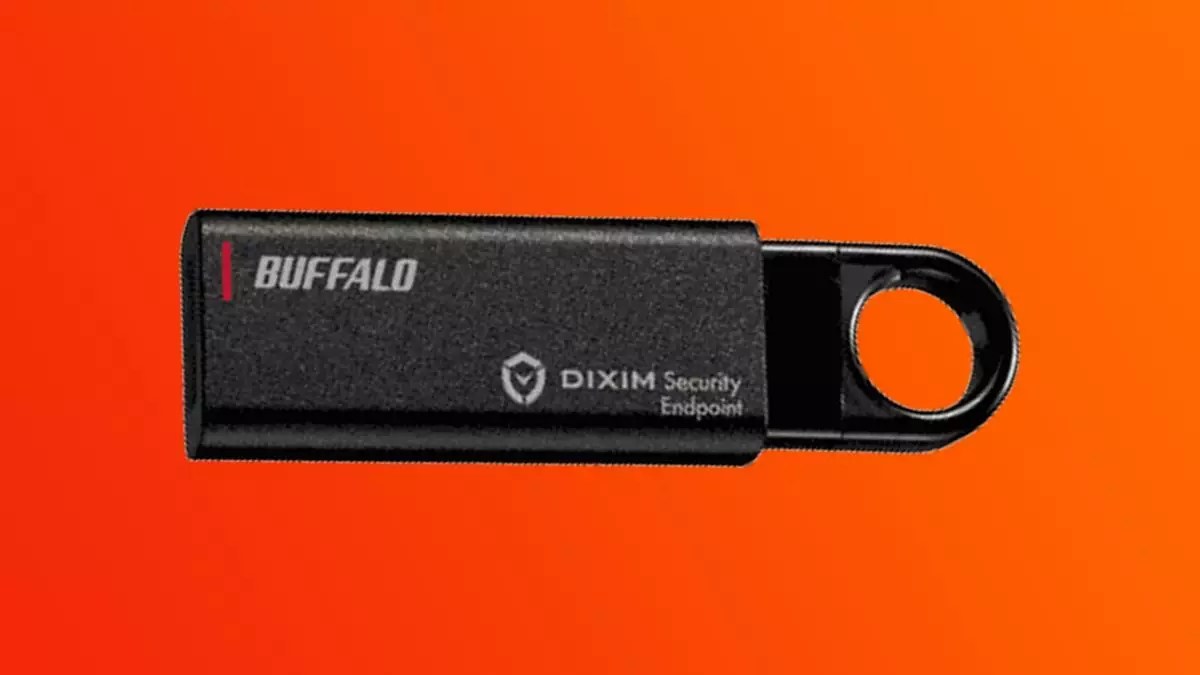In our increasingly digital world, USB flash drives serve as ubiquitous tools for data storage and transfer. However, despite their compact and innocuous appearance, these devices are often underestimated in terms of the cybersecurity risks they can pose. With the rise of cyber threats, one could argue that more attention should be paid to how these devices can be exploited. The Buffalo RUF3-KEV aims to address these concerns with a robust set of security features. This article delves into the security capabilities of the Buffalo RUF3-KEV while also exploring the broader implications of using USB drives in today’s digital landscape.
The vulnerabilities of USB flash drives become apparent when considering the various ways these devices can be compromised. Cybercriminals have long known that a simple USB drive can be a gateway for malware delivery, often bypassing traditional cybersecurity measures. For example, one notorious case involved a cyber espionage group named GoldenJackal, which utilized USB-delivered malware to infiltrate a secure embassy system. This incident highlights not only the perils that come with using external devices but also underscores the importance of adopting proactive security measures.
A study conducted in 2016 revealed that a staggering percentage of individuals are willing to plug in found USB drives—a habit that even the most cybersecurity-savvy individuals might be reluctant to break. This alarming statistic indicates that while we may have improved our awareness of cyber threats, the temptation of curiosity or the convenience of a flash drive can still lead to severe risks.
Buffalo’s RUF3-KEV is notable for its suite of embedded security measures designed to protect users from potential threats. Firstly, the device includes an anti-malware system known as the DiXiM Security Endpoint, which actively monitors files stored on the drive for real-time threats, working in conjunction with a built-in antivirus scanner that scans files during transfer. This two-pronged approach is commendable and signals Buffalo’s acknowledgment of the risks associated with USB flash drives.
In addition to its scanning capabilities, the RUF3-KEV offers password authentication, adding another layer of security by preventing unauthorized access to sensitive data. It is available in various capacities—16 GB, 32 GB, and 64 GB—making it versatile for different users’ needs. Furthermore, its capless “auto-return” sliding mechanism is designed to keep the USB connector protected from dust and debris, assuring users of a more reliable operation.
While the Buffalo RUF3-KEV takes a step in the right direction by prioritizing security, one must remain vigilant. Even the most advanced cybersecurity solutions can succumb to sophisticated cyber attacks. The reality is that no security system is foolproof, and relying solely on such measures may lead to a false sense of security. This places the responsibility not only on manufacturers but also on users to maintain best practices when handling USB drives.
As the prevalence of cyber threats continues to evolve, there is hope that USB manufacturers will prioritize security as a standard rather than an exception. The broader tech community should advocate for enhanced security protocols within all USB drives, promoting a culture of caution and security awareness among users.
While Buffalo has made commendable progress in the realm of USB security with the RUF3-KEV, it’s crucial for users to approach USB flash drive usage with an informed perspective. As much as security features can shield users from numerous threats, vigilance remains paramount. The unfortunate reality is that individual caution often plays as significant a role in cybersecurity as the technology designed to protect us.
In a world where USB drives can harbor significant risks, promoting an understanding of these dangers is just as important as deploying advanced security measures. The goal should be to cultivate a conscientious user base that recognizes the potential threats and approaches USB drives with a degree of healthy skepticism. After all, in the realm of cybersecurity, it is always better to be safe than sorry.


Leave a Reply